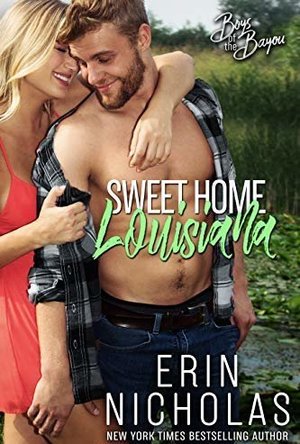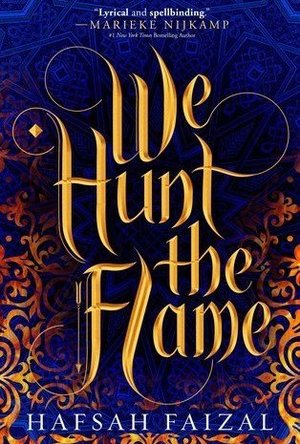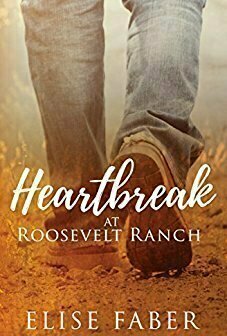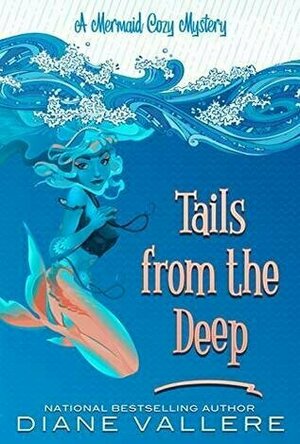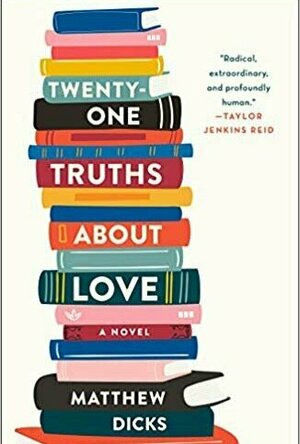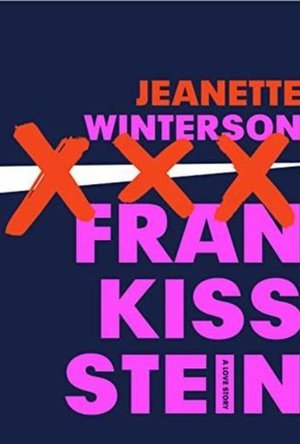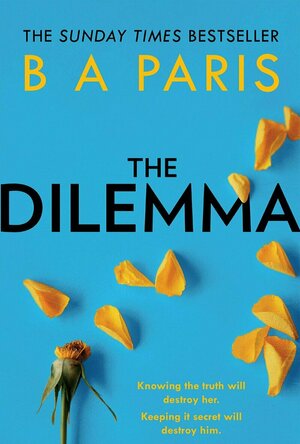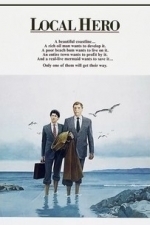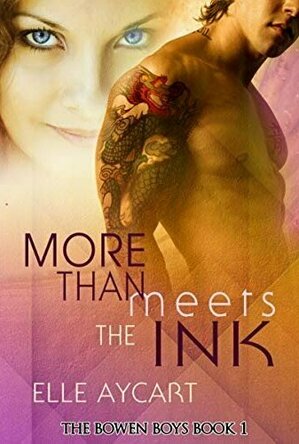Search
Search results
Carma (21 KP) rated Sweet Home Louisiana (Boys of the Bayou, #2) in Books
Jun 17, 2019
Explosive together, tortured apart. Will Maddie and Owen have the same fiery passion a decade plus later. Reunited on the Bayou can only lead them to rediscover who they were, where their lives have gone and who theyve become. Im loving these Bayou boys and girls.
Maddie left the Bayou about 12 years ago, she never wanted to return but then her brother died. She retunred for the funeral but ran again back to the west coast. It isnt that she hated her hometown, she hated how her hometown made her feel. Wild, unencumbered, no filter, she needed to feel more in control of herself. It didnt help that the bayou had Owen.
Owen is a bayou boy through and through. Maddie was his first real love and they were dangerous together. The passion and fire when the two of them got near each other could set the room on fire, and pretty much did. When Maddie wants to sell her shares of Boys of the Bayou she first must return home for 30 days as per the agreement made years before. Owen sees his chance to remind her whats in her blood, who she is down deep.
Owen and Maddie together are full of passion and spark. You can almost see the flames jumping off the pages when they come together. But will that be enough to get Maddie to want to stay home and run the company with them? She has an investor that is a good fit for the company that wants to jump head first into helping grow the company but the boys arent that open to a new person coming into their tight fold, especially with him having majority ownership along with Sawyer. Kennedy doesnt want Bennett there but for much different reasons (I see a juicy story unfolding).
This series has me dying in between releases. The author has the ability to pull me right into not only the pages and scenes but I can feel the heat of the bayou, the smells the bayou, the noise of the airboats. Sawyer is next up and it is going to be so so good, I can feel that too.
Maddie left the Bayou about 12 years ago, she never wanted to return but then her brother died. She retunred for the funeral but ran again back to the west coast. It isnt that she hated her hometown, she hated how her hometown made her feel. Wild, unencumbered, no filter, she needed to feel more in control of herself. It didnt help that the bayou had Owen.
Owen is a bayou boy through and through. Maddie was his first real love and they were dangerous together. The passion and fire when the two of them got near each other could set the room on fire, and pretty much did. When Maddie wants to sell her shares of Boys of the Bayou she first must return home for 30 days as per the agreement made years before. Owen sees his chance to remind her whats in her blood, who she is down deep.
Owen and Maddie together are full of passion and spark. You can almost see the flames jumping off the pages when they come together. But will that be enough to get Maddie to want to stay home and run the company with them? She has an investor that is a good fit for the company that wants to jump head first into helping grow the company but the boys arent that open to a new person coming into their tight fold, especially with him having majority ownership along with Sawyer. Kennedy doesnt want Bennett there but for much different reasons (I see a juicy story unfolding).
This series has me dying in between releases. The author has the ability to pull me right into not only the pages and scenes but I can feel the heat of the bayou, the smells the bayou, the noise of the airboats. Sawyer is next up and it is going to be so so good, I can feel that too.
Goddess in the Stacks (553 KP) rated We Hunt The Flame (Sands of Arawiya #1) in Books
Jul 23, 2019
This is the first book in a planned duology, and I NEED THE SECOND ONE RIGHT NOW. Zafira is a firecracker, and Nasir is a precious gumdrop, and Altair is a mystery, while I can't help but read Kifah as Valkyrie from Avengers. (Seriously, if this ever gets made into a movie and Tessa Thompson DOESN'T get cast as Kifah, I'll be upset.)
These characters, and this setting, and this worldbuilding, and this plot...Faizal has blown me away with this book. There are twists I saw coming, and some I did not, so I'm not going to go into much detail about the plot, but Zafira and a few other people are searching for a magical artifact to restore magic to their kingdom, after it was locked away many years ago. I don't remember exactly how long it's been; Zafira can't remember having magic, but she does mention at one point that her mother was a healer. So sometime during her mother's lifetime? The kingdom has been cursed in the absence of magic, different curses for the different districts, and the Arz is a magical forest encroaching on the borders. Almost no one who goes into the Arz ever comes out again, so it's incredibly dangerous for anyone who isn't Zafira. Zafira has the unique ability to always know which direction she needs to go to reach her goal, and it's this ability that brings her to the attention of the Silver Witch, who sets her on the path to find the artifact. The artifact is, of course, on the enchanted island that serves as a prison for all the magical objects and creatures, so Zafira and her companions face all kinds of unknown dangers.
I really enjoyed basically everything about this book. There was character development, a touch of romance, a team learning to work as a team, secrets, magic, ancient evils, trauma and emotional work...just a lot. (Also enemies-to-lovers, if you're into that.) It is a brilliant epic fantasy, and I cannot WAIT for the second book. I need to know what happens! (It doesn't end on a cliffhanger, exactly, but things are definitely NOT. RESOLVED.)
You can find all my reviews and more at http://goddessinthestacks.com
These characters, and this setting, and this worldbuilding, and this plot...Faizal has blown me away with this book. There are twists I saw coming, and some I did not, so I'm not going to go into much detail about the plot, but Zafira and a few other people are searching for a magical artifact to restore magic to their kingdom, after it was locked away many years ago. I don't remember exactly how long it's been; Zafira can't remember having magic, but she does mention at one point that her mother was a healer. So sometime during her mother's lifetime? The kingdom has been cursed in the absence of magic, different curses for the different districts, and the Arz is a magical forest encroaching on the borders. Almost no one who goes into the Arz ever comes out again, so it's incredibly dangerous for anyone who isn't Zafira. Zafira has the unique ability to always know which direction she needs to go to reach her goal, and it's this ability that brings her to the attention of the Silver Witch, who sets her on the path to find the artifact. The artifact is, of course, on the enchanted island that serves as a prison for all the magical objects and creatures, so Zafira and her companions face all kinds of unknown dangers.
I really enjoyed basically everything about this book. There was character development, a touch of romance, a team learning to work as a team, secrets, magic, ancient evils, trauma and emotional work...just a lot. (Also enemies-to-lovers, if you're into that.) It is a brilliant epic fantasy, and I cannot WAIT for the second book. I need to know what happens! (It doesn't end on a cliffhanger, exactly, but things are definitely NOT. RESOLVED.)
You can find all my reviews and more at http://goddessinthestacks.com
Merissa (13770 KP) rated Heartbreak at Roosevelt Ranch (Roosevelt Ranch #2) in Books
Nov 14, 2019
Heartbreak at Roosevelt Ranch is the second book in the Roosevelt Ranch series, and this time we get to know more about Miss (Melissa), Kelly's sister. She is married to Rob who had recently had a promotion at work, but the cost of this appears to be their marriage.
I was a bit worried about this book before I started it. Call me sappy but I hate to read stories about a marriage gone wrong although I don't mind if they're already divorced or separated. Consider it one of my quirks! Instead, what I found was a story that had me invested from the very beginning. Yes, Miss and Rob's marriage was in danger. Yes, they BOTH had work to do to put it right. And yes, Rob did make some stupid decision's to do with his career. NEITHER of them was blameless, and it took both of them to see it and to try to work it through.
Celeste was the other woman and all I saw was a woman trying waaaay too hard. Every moment that Rob was thinking about her, he was comparing her to Miss, and Miss always came out first. Rob is married, that doesn't mean he stops seeing other women around him, or can appreciate their qualities. So long as he doesn't touch and doesn't wander, I don't see the problem. I can't remember who said it, but "I can look at the menu, honey. I just don't order anything anymore!"
There are some questions left after reading this, questions that Miss also has, so you never know, they may be answered in future books. I'm sure Miss and Rob will play a part in those, just like Justin and Kelly played a part in this one.
The pacing was smooth and the writing intricate enough to keep my interest. The characters build up from the previous book, and I loved the internal thoughts of both Miss and Rob. This was a great addition to the series, and I have no hesitation in recommending it.
* A copy of this book was provided to me with no requirements for a review. I voluntarily read this book, and the comments here are my honest opinion. *
Merissa
Archaeolibrarian - I Dig Good Books!
I was a bit worried about this book before I started it. Call me sappy but I hate to read stories about a marriage gone wrong although I don't mind if they're already divorced or separated. Consider it one of my quirks! Instead, what I found was a story that had me invested from the very beginning. Yes, Miss and Rob's marriage was in danger. Yes, they BOTH had work to do to put it right. And yes, Rob did make some stupid decision's to do with his career. NEITHER of them was blameless, and it took both of them to see it and to try to work it through.
Celeste was the other woman and all I saw was a woman trying waaaay too hard. Every moment that Rob was thinking about her, he was comparing her to Miss, and Miss always came out first. Rob is married, that doesn't mean he stops seeing other women around him, or can appreciate their qualities. So long as he doesn't touch and doesn't wander, I don't see the problem. I can't remember who said it, but "I can look at the menu, honey. I just don't order anything anymore!"
There are some questions left after reading this, questions that Miss also has, so you never know, they may be answered in future books. I'm sure Miss and Rob will play a part in those, just like Justin and Kelly played a part in this one.
The pacing was smooth and the writing intricate enough to keep my interest. The characters build up from the previous book, and I loved the internal thoughts of both Miss and Rob. This was a great addition to the series, and I have no hesitation in recommending it.
* A copy of this book was provided to me with no requirements for a review. I voluntarily read this book, and the comments here are my honest opinion. *
Merissa
Archaeolibrarian - I Dig Good Books!
Mark @ Carstairs Considers (2484 KP) rated Tails from the Deep in Books
Mar 14, 2020
Zoe is the middle of three sisters, the daughters of Mother, the leader of the merfolk settlement Sirenia somewhere under the sea. Unlike her other sisters, Zoe loves to explore. One of her favorite places is a shipwreck beyond the edges of her merfolk village. She sneaks out there quite frequently, so when things seem off one day, she is quick to notice. When she returns the next day, she finds a human diver trapped on the bottom next to a dead body. She frees the diver, but her actions lead to questions that might impact her settlement. Can she figure out who to trust and what is really going on?
Mermaid mysteries are definitely something different, but I couldn’t resist when Diane announced she was going to write these. After all, I love the water, so the idea of living under the sea, at least for a few pages, was too irresistible. I’m glad I did because I enjoyed this story. This reads very much like a cozy murder mystery with plenty of twists and turns. The end was a little abrupt, but that’s a minor issue. As we read, we also get a feel for mermaid culture, which was a delight. Many of the slight twists on our world and expectations made me smile. It was definitely well thought out. We also get to know Zoe very well over the course of the story since is many ways these stories are coming of age stories in addition to mysteries. Since it is a 100 page novella, there isn’t tons of character development for the rest of the characters, but they still come across as real. The other two stories focus on Zoe’s sisters, and I can’t wait to see how they are developed and how that fits with Zoe’s take on her sisters. If you are looking for a slight fantasy edge to your cozy, I definitely recommend this novella for something different.
NOTE: This story, along with the stories of Zoe’s sisters, are included in the Mermaid Mysteries anthology. Buy them individually or as a set, but there is no need to buy both.
Mermaid mysteries are definitely something different, but I couldn’t resist when Diane announced she was going to write these. After all, I love the water, so the idea of living under the sea, at least for a few pages, was too irresistible. I’m glad I did because I enjoyed this story. This reads very much like a cozy murder mystery with plenty of twists and turns. The end was a little abrupt, but that’s a minor issue. As we read, we also get a feel for mermaid culture, which was a delight. Many of the slight twists on our world and expectations made me smile. It was definitely well thought out. We also get to know Zoe very well over the course of the story since is many ways these stories are coming of age stories in addition to mysteries. Since it is a 100 page novella, there isn’t tons of character development for the rest of the characters, but they still come across as real. The other two stories focus on Zoe’s sisters, and I can’t wait to see how they are developed and how that fits with Zoe’s take on her sisters. If you are looking for a slight fantasy edge to your cozy, I definitely recommend this novella for something different.
NOTE: This story, along with the stories of Zoe’s sisters, are included in the Mermaid Mysteries anthology. Buy them individually or as a set, but there is no need to buy both.
Kristy H (1252 KP) rated Twenty-One Truths About Love in Books
Mar 19, 2020
Dan Mayrock is an obsessive list maker who has quit his job as a teacher and opened a bookstore. But now he's in financial trouble and afraid to tell his wife, Jill. Jill was previously married and Dan feels he can never quite live up to Jill's late husband. And then, Jill gets pregnant. Now Dan feels even more pressure to be the best he can be for Jill.
The shtick of this book is that it's told entirely in list form. No dialogue, no narrative, nothing. Just lists. It did wear a little thin at times, but it was an interesting way to learn about someone's life. You learn about Dan's finances, feelings, and amazingly, a lot about his past.
For me, what really got me about this book is that I just couldn't warm to Dan. I think most people find this book heartwarming and cute, but I found him--and it--annoying and whiny. He doesn't want to tell his wife about his financial problems with the store, so he concocts some ridiculous scheme to "help" the family instead. It was just too much for me. Man up, tell your wife, and take responsibility for your actions. I didn't find it cute, and if I was his wife, I would have kicked him to the curb.
It's a shame, because a lot of the book was filled with really funny and spot-on observations about life. I especially loved Dan's ruminations on teaching and meetings. They were incredibly true to life. There are a lot of humorous and touching moments in this book, but I could never really push past the fact that he was a spineless liar.
"'Let's start off with an icebreaker' are words no human being has ever wanted to hear."
Overall, I enjoyed pieces of this book, but found myself skimming others. I liked the idea of it, but could never warm to Dan and since the whole book was his lists and life, it was hard to enjoy without liking him. I need a book from the POV of his older Bingo buddy, Bill. Now he was a cool dude.
The shtick of this book is that it's told entirely in list form. No dialogue, no narrative, nothing. Just lists. It did wear a little thin at times, but it was an interesting way to learn about someone's life. You learn about Dan's finances, feelings, and amazingly, a lot about his past.
For me, what really got me about this book is that I just couldn't warm to Dan. I think most people find this book heartwarming and cute, but I found him--and it--annoying and whiny. He doesn't want to tell his wife about his financial problems with the store, so he concocts some ridiculous scheme to "help" the family instead. It was just too much for me. Man up, tell your wife, and take responsibility for your actions. I didn't find it cute, and if I was his wife, I would have kicked him to the curb.
It's a shame, because a lot of the book was filled with really funny and spot-on observations about life. I especially loved Dan's ruminations on teaching and meetings. They were incredibly true to life. There are a lot of humorous and touching moments in this book, but I could never really push past the fact that he was a spineless liar.
"'Let's start off with an icebreaker' are words no human being has ever wanted to hear."
Overall, I enjoyed pieces of this book, but found myself skimming others. I liked the idea of it, but could never warm to Dan and since the whole book was his lists and life, it was hard to enjoy without liking him. I need a book from the POV of his older Bingo buddy, Bill. Now he was a cool dude.
ClareR (6067 KP) rated Frankissstein in Books
Aug 6, 2019
A novel with a lot to think about!
I feel a sense of satisfaction having finished this book. I loved it, and I can really see why it has made the Booker Prize longlist (2019).
It is set in two different timelines. The first begins in 1816 with Mary Shelley, Percy Shelley (actually, before they were married), Lord Byron, Mary’s stepsister and Byron’s lover, Claire Clairmont and Polidori, Byron’s doctor. During a particularly wet two weeks on Lake Geneva, Byron sets them all the task of writing a horror story. And so Frankenstein; or, The Modern Prometheus is born.
In the modern day, we follow Ry Shelley, a transgender doctor, Victor Stein (a ‘mad’ scientist), Ron Lord (a very successful sexbot producer), Clare (a staunch Christian, who seems to be working undercover in the most unlikely places!) and Polly Dory (a journalist for Vanity Fair. Do you see what she did here? It took me a couple of ‘chapters’, sadly! This is the Frankenstein of the modern age. Where Mary Shelley was terrified at the idea of creating a living man from parts of the dead, Victor Stein in the present day wants to preserve the brains and thoughts of the dead - and it’s equally terrifying.
Mary Shelley and Ry Shelley are very similar (the same, but in different times?) characters, even though they are in two very different times. Mary is at the mercy of her female body - she falls pregnant and loses two babies before she has the third who survives. Ry is trying to change his body from female to male so that he has control over it. But society has very fixed ideas about these characters in both timelines.
It’s a very current book with mention of Brexit and Trump, but I think it will hold up well in the future because it is so well written, and it has a lot to say about society and gender.
I thoroughly enjoyed it - and now I’m going to go and find more books in Jeanette Wintersons back catalogue!
Many thanks to Penguin Random House/ Jonathan Cape and NetGalley for a copy of this book (which I actually went and bought as well - it needs to be sat on my bookshelf!)
It is set in two different timelines. The first begins in 1816 with Mary Shelley, Percy Shelley (actually, before they were married), Lord Byron, Mary’s stepsister and Byron’s lover, Claire Clairmont and Polidori, Byron’s doctor. During a particularly wet two weeks on Lake Geneva, Byron sets them all the task of writing a horror story. And so Frankenstein; or, The Modern Prometheus is born.
In the modern day, we follow Ry Shelley, a transgender doctor, Victor Stein (a ‘mad’ scientist), Ron Lord (a very successful sexbot producer), Clare (a staunch Christian, who seems to be working undercover in the most unlikely places!) and Polly Dory (a journalist for Vanity Fair. Do you see what she did here? It took me a couple of ‘chapters’, sadly! This is the Frankenstein of the modern age. Where Mary Shelley was terrified at the idea of creating a living man from parts of the dead, Victor Stein in the present day wants to preserve the brains and thoughts of the dead - and it’s equally terrifying.
Mary Shelley and Ry Shelley are very similar (the same, but in different times?) characters, even though they are in two very different times. Mary is at the mercy of her female body - she falls pregnant and loses two babies before she has the third who survives. Ry is trying to change his body from female to male so that he has control over it. But society has very fixed ideas about these characters in both timelines.
It’s a very current book with mention of Brexit and Trump, but I think it will hold up well in the future because it is so well written, and it has a lot to say about society and gender.
I thoroughly enjoyed it - and now I’m going to go and find more books in Jeanette Wintersons back catalogue!
Many thanks to Penguin Random House/ Jonathan Cape and NetGalley for a copy of this book (which I actually went and bought as well - it needs to be sat on my bookshelf!)

Out of Our Minds: Learning to be Creative
Book
"It is often said that education and training are the keys to the future. They are, but a key can be...
Kristy H (1252 KP) rated The Dilemma in Books
Jul 2, 2020
Livia became pregnant when she was seventeen and her wealthy but distant parents basically disowned her. As such, she's always dreamed of having a giant party of her own. Now she's turning forty and finally having the lavish party she's always longed for. Her husband Adam and eldest child, Josh, will be there, but her younger daughter Marnie, who is studying in Hong Kong, will miss the celebration. And, secretly, Livia is relieved--something she hasn't even told Adam. Adam, meanwhile, just wants it all to go well for Livia. He has his own surprise planned, until he learns something terrible that will change everything.
"What I hate most is that my need for this party came from my parents. If I'd been able to have the wedding they promised me, I wouldn't have become obsessed with having my own special day."
Well, I can say one thing about this book: it's really readable. I flew through it in one day. Now, did I enjoy it? That's something entirely different. The plot is based on a preposterous web of lies and secrets that I don't think any couple would actually keep from one another. Not to mention that Livia is just ridiculous in her desire for this elaborate party, which we learn she has truly been dreaming about and planning for twenty freaking years. Seriously, lady?
Both Livia and Adam make insane decisions in the name of their secrets, but Livia's "secret"--which is actually just her being crazy yet again and overreacting to life--pales in comparison to Adam's, so it's impossible to take her seriously about anything. Meanwhile, you just want to shake Adam, tell him it's a stupid party, and get it together. Man up, tell your wife, and let's go. None--none of this--is necessary!
Honestly, while I kept turning the pages because a) I hoped someone would grow up and make a smart decision and b) I was wishing things would turn out differently, this book was stressful. It was hard to read, emotional, and tense (and not in a good, thrilling way). The whole story has an "ick" factor to it. While it was a quick read, it's not one I really recommend. 2 stars.
"What I hate most is that my need for this party came from my parents. If I'd been able to have the wedding they promised me, I wouldn't have become obsessed with having my own special day."
Well, I can say one thing about this book: it's really readable. I flew through it in one day. Now, did I enjoy it? That's something entirely different. The plot is based on a preposterous web of lies and secrets that I don't think any couple would actually keep from one another. Not to mention that Livia is just ridiculous in her desire for this elaborate party, which we learn she has truly been dreaming about and planning for twenty freaking years. Seriously, lady?
Both Livia and Adam make insane decisions in the name of their secrets, but Livia's "secret"--which is actually just her being crazy yet again and overreacting to life--pales in comparison to Adam's, so it's impossible to take her seriously about anything. Meanwhile, you just want to shake Adam, tell him it's a stupid party, and get it together. Man up, tell your wife, and let's go. None--none of this--is necessary!
Honestly, while I kept turning the pages because a) I hoped someone would grow up and make a smart decision and b) I was wishing things would turn out differently, this book was stressful. It was hard to read, emotional, and tense (and not in a good, thrilling way). The whole story has an "ick" factor to it. While it was a quick read, it's not one I really recommend. 2 stars.
Dave Eggers recommended Local Hero (1983) in Movies (curated)
Leanne Crabtree (480 KP) rated More than Meets the Ink (The Bowen Boys #1) in Books
Jan 6, 2021
This review and more can be found at my blog https://aromancereadersreviews.blogspot.com
A Romance Reader's Reviews
2.5 stars
This has been borrowed from the Kindle Unlimited library and has been on my "want-to-read-don't-own" shelf on Goodreads for quite a while
This starts with Tate crawling across the garden with her mother as they try to spy on their neighbour, who Tate's mum believes has taken her cat, Amy. They are interrupted by tattooed pretty boy, James, who happens to be their neighbours son. Instant attraction leads to flirting. Flirting leads to lots of hot almost-sex, almost because they keep being interrupted by the residents of the older peoples housing facility where they're visiting their respective parents. They finally do the deed before they both have to head home, only they now know they live in the same city. And of course they end up meeting again.
Before I started this I thought it was more of a new adult type thing with it's older cover but the new one (above) has made it all a bit more mysterious. I wasn't sure what the story was going to be other than a romance so its detailed sex scenes threw me off a bit and after so many, I started skipping them entirely. The romance was already starting to bloom so I wasn't really missing anything.
There's also a secondary storyline involving Tate's family restaurant and someone trying to get her to close it with daily threatening emails and stuff going wrong in the restaurant. When James gets wind of what's been happening he insists on helping her deal with it.
I have to admit that I liked James, quite a lot to be honest. He was a little take-charge and bull headed at times but you could tell he did it because he cared. Tate was far too judgmental at the start and it took me quite a while to warm up to her. She seemed really argumentative at times and somewhat whiny.
I'll admit that towards the end I started skipping bits, starting to lose interest in it. I was mainly waiting for the show down with the bad guy.
Not as good as I wanted it to be.
A Romance Reader's Reviews
2.5 stars
This has been borrowed from the Kindle Unlimited library and has been on my "want-to-read-don't-own" shelf on Goodreads for quite a while
This starts with Tate crawling across the garden with her mother as they try to spy on their neighbour, who Tate's mum believes has taken her cat, Amy. They are interrupted by tattooed pretty boy, James, who happens to be their neighbours son. Instant attraction leads to flirting. Flirting leads to lots of hot almost-sex, almost because they keep being interrupted by the residents of the older peoples housing facility where they're visiting their respective parents. They finally do the deed before they both have to head home, only they now know they live in the same city. And of course they end up meeting again.
Before I started this I thought it was more of a new adult type thing with it's older cover but the new one (above) has made it all a bit more mysterious. I wasn't sure what the story was going to be other than a romance so its detailed sex scenes threw me off a bit and after so many, I started skipping them entirely. The romance was already starting to bloom so I wasn't really missing anything.
There's also a secondary storyline involving Tate's family restaurant and someone trying to get her to close it with daily threatening emails and stuff going wrong in the restaurant. When James gets wind of what's been happening he insists on helping her deal with it.
I have to admit that I liked James, quite a lot to be honest. He was a little take-charge and bull headed at times but you could tell he did it because he cared. Tate was far too judgmental at the start and it took me quite a while to warm up to her. She seemed really argumentative at times and somewhat whiny.
I'll admit that towards the end I started skipping bits, starting to lose interest in it. I was mainly waiting for the show down with the bad guy.
Not as good as I wanted it to be.
